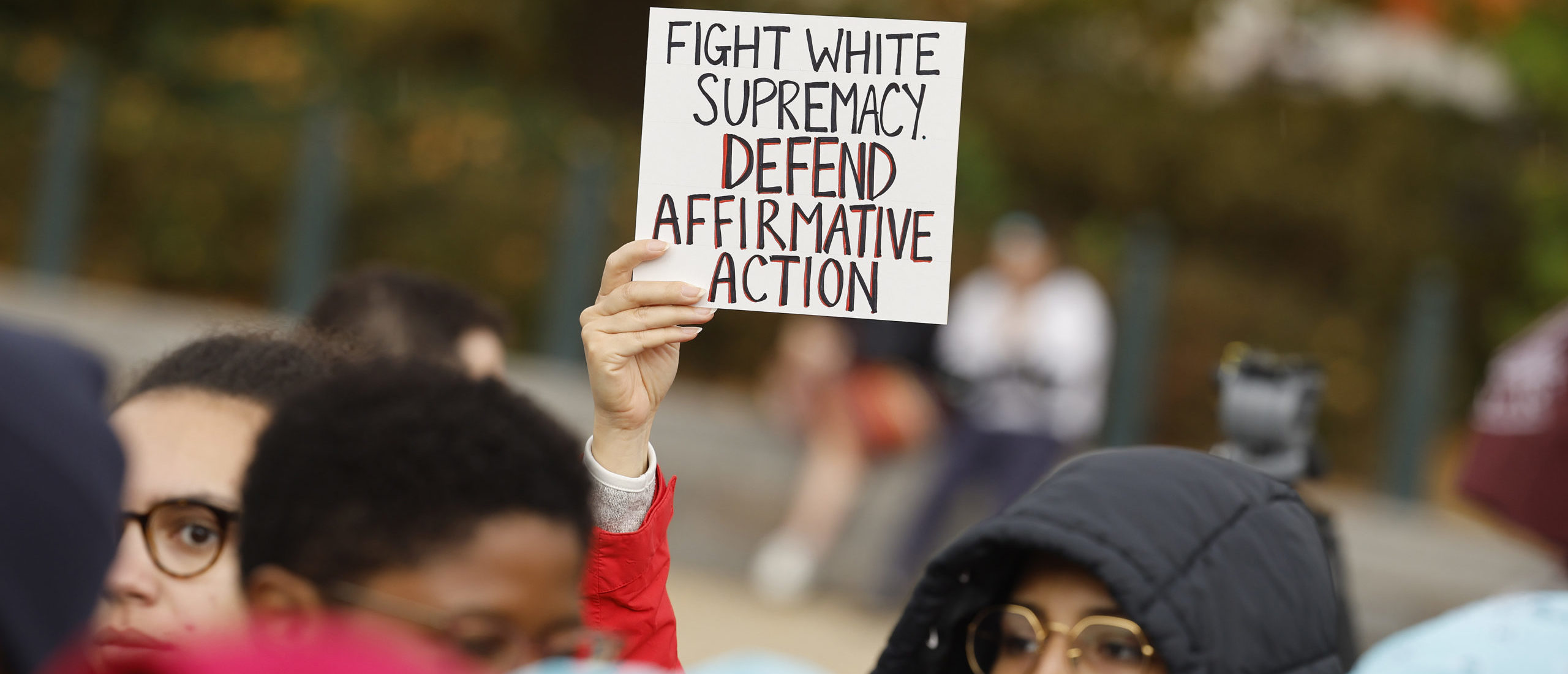The Supreme Court’s soon to be released ruling on affirmative action could have major ripple effects outside the sphere of higher education, experts told the Daily Caller News Foundation.
Among the last cases remaining for justices to rule on are lawsuits against Harvard University and the University of North Carolina challenging race-based admissions policies that the plaintiffs, Students for Fair Admissions, allege violate Title VI of the Civil Rights Act of 1964, which prohibits discrimination on the basis of race, color or national origin. A Supreme Court ruling against affirmative action could indirectly call into question corporate America’s diversity hiring initiatives, experts told the DCNF.
“While the Court’s ruling on racial preferences won’t technically cover businesses, it could have implications for the private sector which also must ensure that its hiring practices aren’t discriminatory,” Carrie Severino, president of JCN, an organization that works to promote a “fair and impartial judiciary,” told the DCNF.
Manhattan Institute Policy Analyst Renu Mukherjee told the DCNF the ruling is “likely to give corporate America, which itself has embraced race-based hiring/promotions and [Diversity, Equity and Inclusion], pause.”
“In fact, a number of major U.S. businesses – including American Airlines, Google, Hershey, and Starbucks – filed an amicus brief in Students for Fair Admissions encouraging the Court to continue allowing colleges to use racial preferences, which suggests they might be concerned that their affirmative action programs are likely [to] receive scrutiny next,” Mukherjee said.
Companies argue in the brief that diverse workforces “improve” performance and “thus strengthen the American and global economies.” The companies say they seek “employees who have been educated at universities with exposure to a broad array of life experiences and viewpoints, and who can bring diverse perspectives and experiences to the workplace.”

Proponents for affirmative action in higher education rally in front of the U.S. Supreme Court on October 31, 2022 in Washington, DC. (Photo by Chip Somodevilla/Getty Images)
GianCarlo Canaparo, senior legal fellow at the Heritage Foundation’s Edwin Meese III Center for Legal and Judicial Studies, pointed to the “threat of increased litigation” as a potential motivator for some employers to stop running these kinds of programs. (RELATED: McDonalds Hit With Civil Rights Complaint For Allegedly Racist Hiring Practices)
“The civil rights laws already forbid race-based hiring, firing, promotion, training, scheduling, etc., but some employers still do these things,” Canaparo told the DCNF. “The affirmative action cases won’t make it easier to sue employers that discriminate—all the legal tools to do that are already there—but it may encourage people who would otherwise just keep their mouths shut to stand up for what is right.”
“The threat of increased litigation might discourage some employers from using racially discriminatory practices,” he continued. “But others will do it anyway, treating the risk of a civil rights violation as an acceptable cost of their ideology.”
Some companies are already facing legal challenges to their diversity programs. In April, America First Legal (AFL) requested the U.S. Equal Employment Opportunity Commission (EEOC) open a civil rights investigation into McDonald’s over publicly available staffing goals that show it created demographic quotas for employees.
AFL filed similar complaints against Starbucks, Hershey and BlackRock.
“I think that a ruling against Harvard and UNC could very well encourage a series of lawsuits, challenging other students racial preference policies, especially because probably for the first time there is a real infrastructure of anti-preference groups with real funding, waiting to do so,” George Mason University Law Professor David Bernstein told the DCNF. “How many challenges there will be, in what contexts, and how successful they will be depends a lot on how strong the opinion is.”
The Supreme Court is expected to rule on the affirmative action cases this week. Universities have been anticipating that the Supreme Court will overturn affirmative action for months.
All content created by the Daily Caller News Foundation, an independent and nonpartisan newswire service, is available without charge to any legitimate news publisher that can provide a large audience. All republished articles must include our logo, our reporter’s byline and their DCNF affiliation. For any questions about our guidelines or partnering with us, please contact licensing@dailycallernewsfoundation.org.


